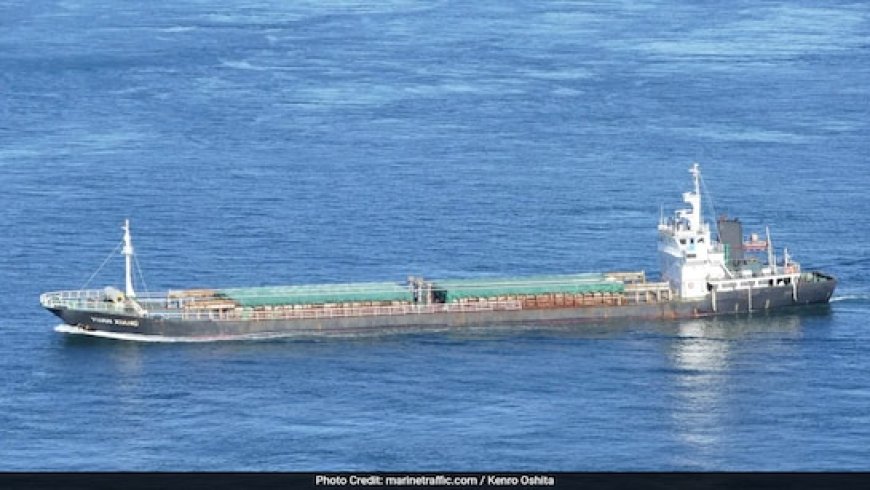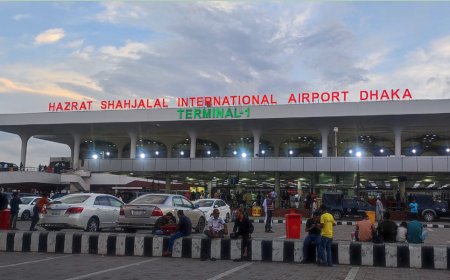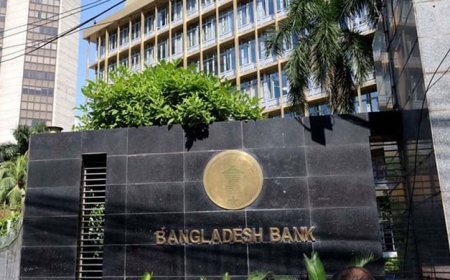Dhaka and Islamabad Forge Closer Ties with Historic Sea Link: Implications for India
The strengthening relationship between Pakistan and Bangladesh could raise concerns for India, given New Delhi's long-standing vigilance over the sea routes connecting the Chittagong and Mongla ports since the 1970s.

Historic Maritime Link Between Pakistan and Bangladesh: Implications for India
A Pakistani cargo ship recently docked at Bangladesh’s Chittagong port, marking the first direct maritime connection between the two countries in over five decades. The Panama-flagged vessel, Yuan Xiang Fa Zhan, sailed from Karachi and unloaded its cargo at Chittagong on November 11, signaling a historic shift in bilateral ties. The goods included raw materials for Bangladesh’s garment industry and essential food items, bypassing the previous reliance on third-party ports in Sri Lanka, Malaysia, or Singapore.
This development highlights efforts by Bangladesh’s interim government, led by Muhammad Yunus, to rebuild relations with Pakistan, which had been frosty since the 1971 Bangladesh Liberation War. The move has drawn widespread attention, with Pakistan’s envoy to Dhaka, Syed Ahmed Maroof, hailing it as a “major step” toward bolstering trade and cooperation between the two nations.
Historical Context and Bilateral Relations
Bangladesh and Pakistan have had a strained relationship since the Liberation War, which saw the killing of approximately 3 million people and countless human rights atrocities by Pakistani forces. Under Sheikh Hasina’s leadership, Dhaka pursued justice for these crimes through the International Crimes Tribunal and banned the pro-Pakistan Jamaat-e-Islami. Hasina’s tenure also solidified close ties with India, a key ally during Bangladesh’s independence movement.
However, since Hasina’s ouster following a student-led revolution, the interim government under Yunus has shown a marked shift, seeking closer ties with Pakistan. Yunus has called for a “new page” in relations, emphasizing bilateral cooperation, including this direct maritime link. Meanwhile, Yunus’s administration has also moved to extradite Sheikh Hasina from India to face charges of human rights violations, adding to the shifting political dynamics in the region.
Implications for India
The growing ties between Bangladesh and Pakistan present strategic and security concerns for India, particularly given Bangladesh’s proximity to India’s northeastern states. Historically, New Delhi has closely monitored activities at Chittagong port, where Pakistan’s intelligence agency, ISI, has previously been implicated in destabilizing activities, including the 2004 arms smuggling case intended for the banned ULFA terrorist group.
Additionally, Pakistan’s involvement in the narcotics trade and ISI-backed operations in the region heightens India’s national security risks. The direct maritime link further enhances Islamabad’s access to the Bay of Bengal, potentially increasing its strategic influence in the region.
Domestic Dynamics in Bangladesh
The Yunus-led government has also proposed removing “socialism” and “secularism” from Bangladesh’s constitution, sparking fears of a shift toward an Islamic state. The re-emergence of Jamaat-e-Islami, which opposed Bangladesh’s creation, underscores these concerns and could have broader regional implications.
Despite these developments, Yunus has emphasized the importance of maintaining close ties with India, citing mutual economic, security, and environmental interests. However, anti-India sentiment in Bangladesh, exacerbated by perceptions of New Delhi’s interference, remains a significant challenge. Violent protests in August, including the vandalism of the Indira Gandhi Cultural Centre in Dhaka, underscore this growing sentiment.
The Road Ahead
While the interim government seeks to balance relations with India and Pakistan, tensions between Dhaka and New Delhi remain evident. Yunus has acknowledged India’s displeasure with recent political changes but has expressed confidence in the necessity of strong bilateral ties. For India, navigating this evolving geopolitical landscape will require recalibrating its approach to Bangladesh, ensuring its security concerns are addressed while fostering positive engagement with the new administration.
With regional dynamics shifting, the strengthening of Dhaka-Islamabad ties through initiatives like the direct maritime route marks a new chapter in South Asian geopolitics—one that India will watch closely.
What's Your Reaction?




















































































